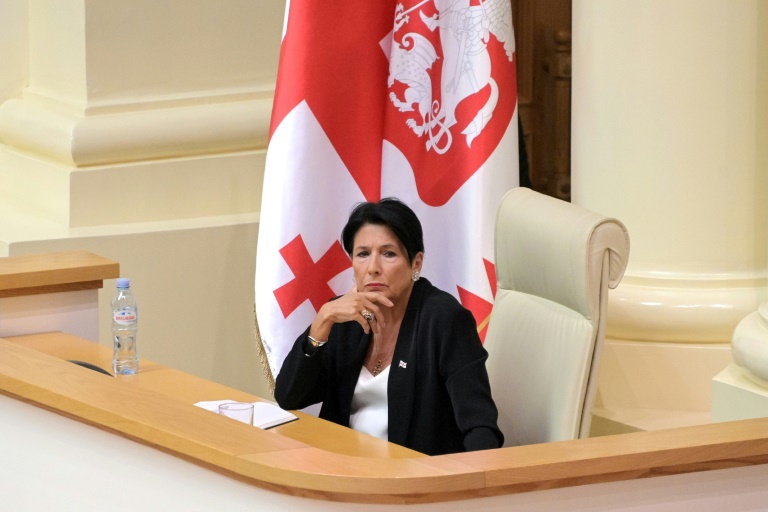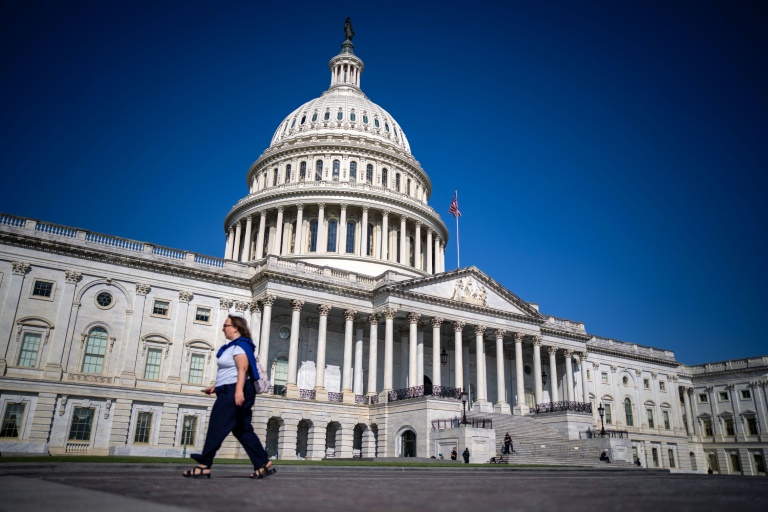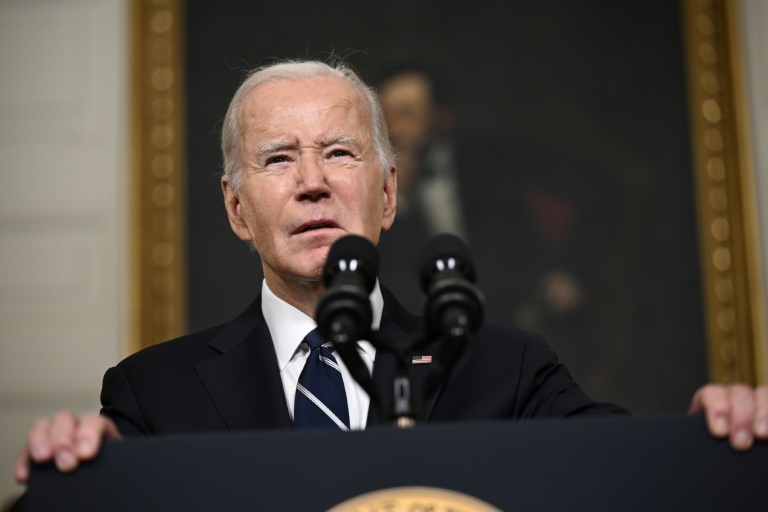Georgia ruling party lawmakers failed to get enough votes to remove the country’s pro-EU President Salome Zurabishvili Wednesday, after she accused the government of undermining Tbilisi’s EU membership bid.
Ruling Georgian Dream party MPs only gathered 86 votes of the 100 needed to oust Zurabishvili in the first-ever impeachment vote in the country’s history, which opposition parties boycotted.
On Monday, Georgia’s constitutional court ruled that Zurabishvili, 71, had violated the constitution by making foreign trips to lobby for Georgian membership of the EU without the government’s permission.
“No-one could impede me on the road leading to the sole goal I have today: to get EU candidate status for Georgia by the end of the year,” she told parliament ahead of the vote.
“During this difficult time, I call on our European partners not to abandon Georgia despite this anti-European impeachment vote,” she said.
Critics have accused the ruling party of steering Georgia towards the Kremlin.
“In the time when Russia is being defeated in Ukraine, it must not be allowed to strengthen its influence in this region with the use of soft power, occupation, and the destabilisation of the Black Sea region,” Zurabishvili said.
Ruling party chairman Irakli Kobakhidze called on the president to step down, saying she was “completely deprived of political and moral legitimacy.”
Zurabishvili had criticised the government over what she said was its failure to deliver on the reforms Brussels had demanded as a condition for granting EU-hopeful Georgia formal candidate status.
Georgia applied for EU membership together with Ukraine and Moldova after Russia invaded its pro-Western neighbour in February 2022.
EU leaders have granted candidate status to Kyiv and Chisinau but urged Tbilisi to first implement judicial and electoral reforms, improve press freedom and curtail the power of oligarchs.
In August and September, Zurabishvili travelled to Brussels, Paris, and Berlin to ask her French and German counterparts as well as EU chief Charles Michel to support putting Georgia on the formal path to EU membership.
Georgia’s constitutional court ruled that Zurabishvili had violated the constitution when she “exercised representative authority in the field of foreign policy without the government’s consent”.
Zurabishvili was elected in 2018 — despite her outsider status — with the support of billionaire oligarch Bidzina Ivanishvili’s ruling Georgian Dream party.
Opposition parties at the time denounced what they alleged was electoral fraud, adding to the controversy of Zurabishvili’s backing from far-right, pro-Russian groups who had staged rallies in her support.
But a rift emerged between Zurabishvili and the ruling party shortly after her election, as she tried to assume an independent political role, vetoing several draft laws she said were eroding Georgia’s democracy.
That included a Russian-style law on “foreign agents” that sparked criticism from the West. That bill provoked mass anti-government protests in March as the Georgian Dream government.
She also denounced the government’s decision in May to reopen direct flights with Russia, a move that also drew condemnation from the EU.
But as president, Zurabishvili’s role is mainly ceremonial and she has limited powers under Georgia’s constitution.






